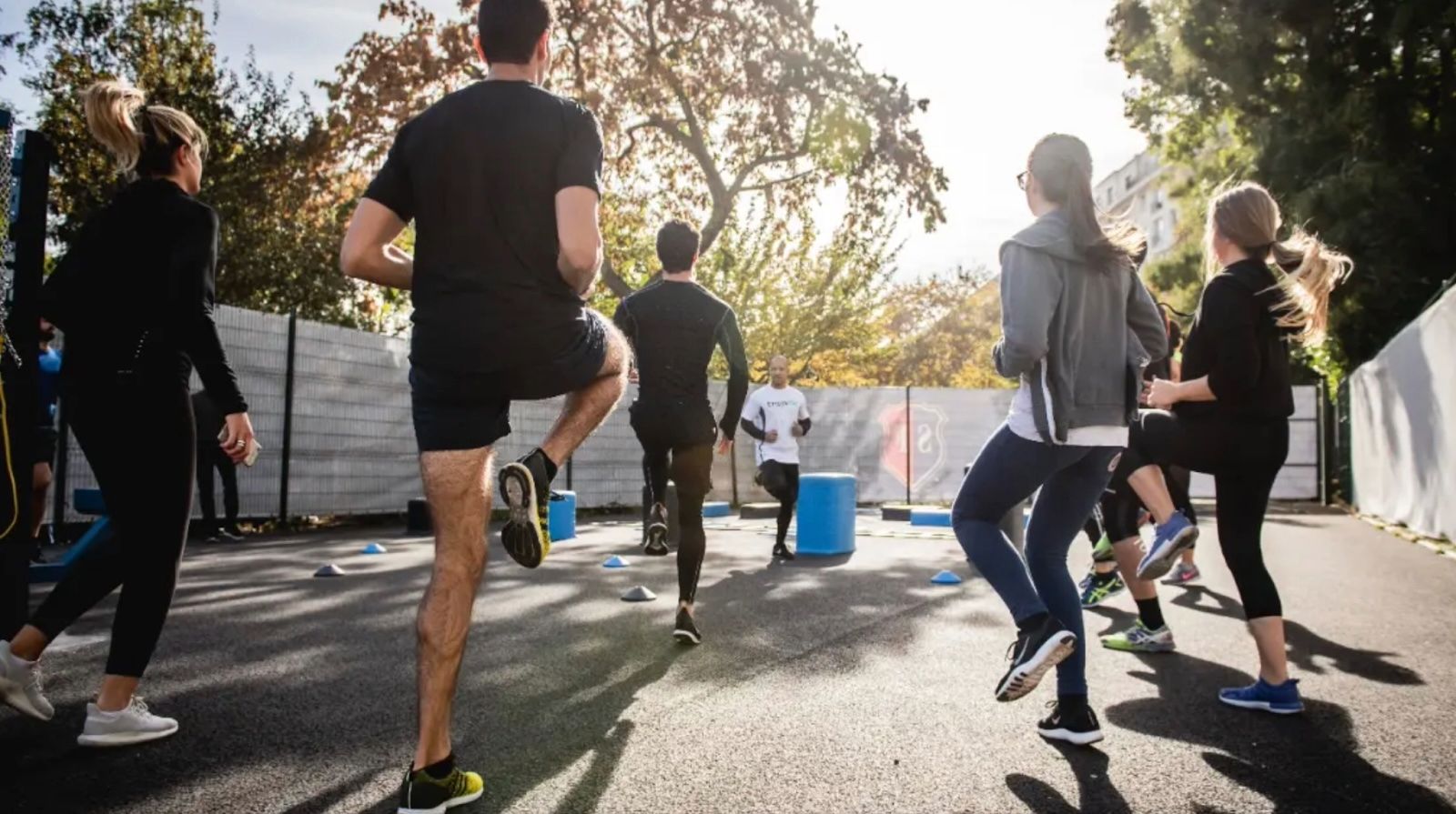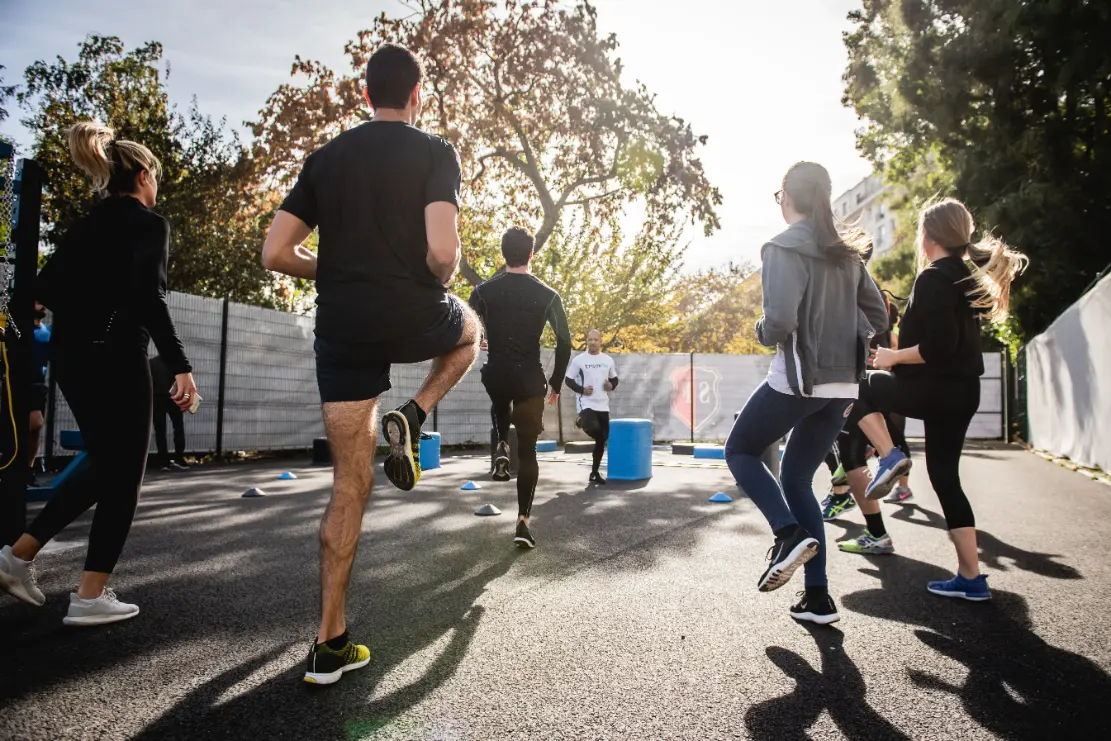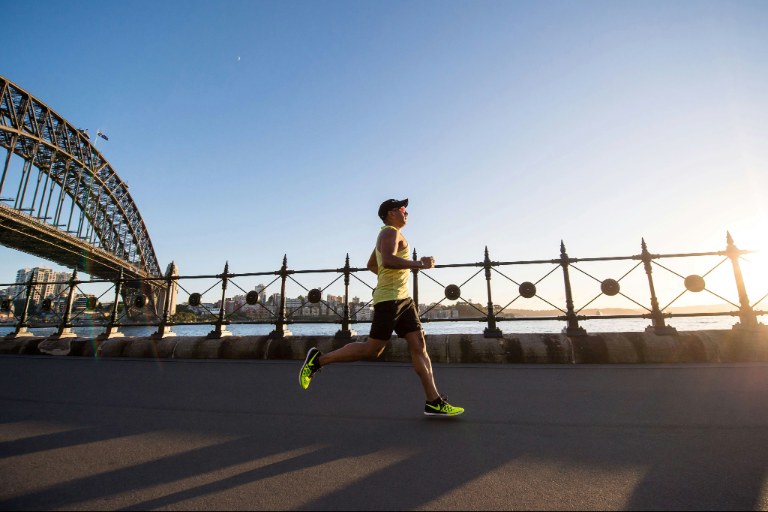How to Run an 18-minute 5K: The Ultimate Guide to Breaking 18 Minutes
Starting your running journey should feel exciting, not overwhelming. Our training plans give you the structure, support, and flexibility you need to go from your first step to running 5k, no matter your starting point.

Breaking through the 18-minute 5K barrier shows that you’ve built a high level of speed, endurance, and training consistency. For many athletes, it’s a milestone that separates casual racing from pushing serious limits. Running at this level proves you’re disciplined, determined, and capable of sustaining a fast pace under pressure.
But the truth is, getting there isn’t simple. Running an 18-minute 5K takes more than grit on the day – it requires well-structured training, smart pacing, and the confidence to stay locked in when the pace feels brutal. The upside? With the right program, mindset, and a clear strategy, hitting this goal is achievable, whether you’re targeting a parkrun PB or racing on the road.
In this complete guide, you’ll find everything you need to make your 18-minute goal a reality:
- Exact target paces and splits so you know what to hit every kilometre.
- Fitness benchmarks to check if you’re ready to take it on.
- A proven training plan with the sessions you need to build speed and endurance.
- Race-day tactics to pace yourself smartly and finish strong.
- Expert tips and real success stories from coaches and runners who’ve achieved 18 themselves.
No more second-guessing. Just clear, practical advice to help you run your fastest 5K yet and enjoy the process along the way.
Ready? Let’s go chase that 18-minute finish!
What Does It Take to Run an 18-minute 5K?

To cross the finish line in 18 minutes, you’ll need to average 5 minutes 47 seconds per mile, or 3:36 per kilometre. That’s your benchmark pace from the first split to the last.
Put simply, every kilometre has to be covered at around that 3:36 mark if you want to hit your goal.
It might sound straightforward, but holding that pace is another story. At this speed, fatigue builds quickly, so success depends not only on raw speed but also on your ability to sustain it. You’ll need strong aerobic fitness, efficient lactate clearance, and the confidence to stay locked into rhythm when it gets uncomfortable.
Who is this goal realistic for?
If your current 5K times are in the 18:30 to 19:30 range, you’re in striking distance of an 18-minute finish. You already have a solid foundation, but now the focus shifts to sharpening your turnover, improving your threshold, and mastering pacing at race effort.
Even if your PB is a little further off, don’t count yourself out. Many runners surprise themselves when they commit to structured training. With targeted workouts and consistency, that 3:36 per kilometre pace can go from intimidating to manageable.
Are You Ready for an 18-minute 5K?
Before setting your sights on running 18 minutes, it’s worth checking whether your current fitness is in the right place. Jumping in too early can lead to burnout or injury, so use these benchmarks to see if you’re ready to handle 3:36/km pace with confidence.
Benchmark Sessions
1. The 5 x 1K Repeats Test
Head to a track or flat road and run 5 x 1K with 90 seconds to 2 minutes of recovery jogs.
- Aim to hold each rep in the 3:32–3:36 range.
- If you finish all five without fading badly (and feel you could squeeze in another one), you’re likely strong enough to tackle race pace on the day.
2. The 2-Mile Time Trial
As an alternative, try running 2 miles hard after a full warm-up.
- If you can average around 11:40–11:50 and still feel like there’s a little left in the tank, that’s a very positive sign you’re ready to chase 18.
These short tests are excellent indicators of both speed and strength, showing whether you’re prepared for the intensity of racing at this level.
Check Your Weekly Mileage Base
Intervals alone won’t carry you to 18 minutes. You need the aerobic foundation to recover between sessions and stay strong over the closing kilometres.
As a guideline:
- You should be running 50–65 km (30–40 miles) per week consistently for at least 6–8 weeks.
- If you’re below that level, take time to gradually build volume before layering on the hard interval work.
Pairing steady mileage with strides or light surges during easy runs will help you adapt to quicker turnover and reduce injury risk as training intensifies.
Key Training Principles
Running an 18 minute 5K demands more than speed alone. You need a well-rounded plan that builds endurance, sharpens turnover, and prepares you to stay strong when fatigue sets in. Here are the core elements to focus on each week:
1. Build Mileage with Care
Your aerobic base is the foundation for fast 5K racing. It gives you the stamina to hold 3:36/km pace all the way to the finish and bounce back from tough workouts.
- Aim for 50–70 km (30–45 miles) per week, depending on your background.
- Keep most of your runs relaxed and conversational. Easy mileage is what lets you handle the quality sessions without breaking down.
- Increase volume gradually, no more than 10% weekly, to stay injury-free.

2. Prioritise Interval Work
Fast intervals are where you practice race rhythm and teach your body to tolerate high effort.
- Staple sessions include 6–8 x 800m or 8–12 x 400m at or just faster than goal pace.
- Take short recoveries (around 90 seconds) to mimic racing conditions.
One quality interval workout per week is usually enough when paired with tempo work.

3. Add Threshold and Tempo Running
Sitting right below your red line, these efforts improve your ability to hold fast paces without blowing up.
- Run 20–30 minutes at about 10–15 seconds slower per kilometre than goal pace.
- Alternatively, break it into cruise intervals such as 4 x 1 mile at threshold pace with short jogs in between.
These runs train your lactate threshold, a key limiter in chasing 18 minutes.

4. Commit to the Long Run
Even at 5K, the long run builds strength and efficiency you can’t get elsewhere.
- Aim for 75–90 minutes at an easy pace each week.
- Think of it as durability training. Your legs will thank you in the closing stages of a hard race.

5. Strength and Mobility Matter
Strong, resilient muscles help you maintain form late in races and reduce injury risk.
- Focus on single-leg strength (lunges, step-ups), hip and glute activation, and core stability.
- Add in mobility for hips, calves, and hamstrings to stay smooth and efficient.
- Two short sessions per week, even 15 minutes each, can go a long way.

Pacing & Race-Day Strategy
As you step onto the start line, your plan matters just as much as your fitness - and the right pacing strategy can carry you all the way to an 18-minute breakthrough. Here's how to set it up:
1. Warm Up the Right Way
To hit 3:36/km pace straight from the start, your body needs to be fully primed.
- Begin with 10–15 minutes of easy jogging to raise your heart rate and loosen your muscles.
- Add dynamic drills like high knees, leg swings, or walking lunges to open up your range of motion.
- Finish with 4–6 strides at quicker than race pace so your legs are ready to snap into gear when the gun goes.
By the time you line up, you should feel switched on, not sluggish.

2. Control the Early Pace
Going out too fast is the biggest mistake in a race this short and intense.
- Stick close to your goal rhythm: 3:36/km or 5:48/mile.
- The opening kilometre should feel smooth, even conservative, not like a sprint.
If you hit that first split and it feels manageable, you’re pacing it right.

3. Stay Composed in the Middle
The second and third kilometres are where the effort really builds.
- Keep your posture tall, shoulders relaxed, and stride quick and light.
- Lock into a consistent cadence to stop your form from breaking down.
Use nearby runners as markers, either tucking in or gradually reeling them in, to help maintain pace.

4. Close Hard in the Final Stretch
With less than 1.5 km to go, it’s time to commit.
- Break it down into smaller chunks: from 1200m out, hold strong; at 400m, start to squeeze; then kick with everything you have over the final straight.
- Focus on driving your arms and keeping your eyes forward.
- Remember, this is what you trained for – every second matters.

Mental Tips for Breaking 18

Running 3:36 per kilometre for 5K is not just a physical test - it’s a battle with your head as much as your legs. The fitter you get, the more mental strength becomes the deciding factor. Here are strategies to help you stay sharp when the effort feels brutal:
Break the Race Into Sections
Instead of thinking about all 5 kilometres at once, divide the race into manageable pieces:
- 1K: Get into rhythm, keep relaxed, and settle into pace.
- 2K: Lock in and stay smooth, resisting the urge to surge early.
- 3K: This is where the discomfort arrives – remind yourself it’s supposed to feel hard.
- 4K: Dig deep. Everyone hurts here, but how you respond makes the difference.
- 5K: Nothing left to save – empty the tank and drive to the line.
Focusing one kilometre at a time keeps the challenge under control.
Use Short, Powerful Mantras
A sharp phrase can drown out the voice telling you to slow down. Examples:
- “Fast and fluid.”
- “Stay strong.”
- “Keep moving.”
Repeat them in rhythm with your stride to keep your mind locked in.
Control Your Breathing
When fatigue builds, steady breathing can ground you. Try in for two steps, out for two steps. This rhythm keeps you relaxed and helps prevent your form from tightening up.
Visualise the Finish Line
In training, take time to imagine yourself racing – hitting splits, holding form, and kicking hard at the end. Picture the clock reading 18:xx as you cross. That mental rehearsal can give you extra belief when the pain sets in.
Nutrition & Gear for an 18-minute 5K

When you’re aiming for 3:36 per kilometre pace, every detail counts. The way you fuel and the kit you wear might not win you the race, but they can definitely make or break your performance. Keep things simple and familiar so you can give full attention to your pacing.
The Night Before
Think of dinner as topping up your reserves, not loading up like it’s a marathon.
- Go for a carbohydrate-focused meal with a lean protein source – pasta with chicken, rice with fish, or potatoes with beans all work well.
- Keep portions moderate to avoid feeling heavy the next morning.
- Hydrate steadily through the day, finishing the evening comfortably hydrated without overdoing it before bed.
On Race Morning
Breakfast should be light, quick to digest, and something you’ve practiced in training.
- Options could include a banana, a slice of toast with jam or honey, or a small bowl of oats.
- Aim to eat 2–3 hours before the gun so you’re not racing on a full stomach.
- Sip water in the lead-up, but avoid chugging large amounts right before the start.
- Avoid anything greasy, spicy, or unfamiliar – this is not the time to experiment.
Gear: Tested and Trusted
Confidence in your gear is as important as the gear itself.
- Lightweight racing shoes are ideal, but only if you’ve logged some sessions in them so they’re broken in.
- Stick with socks and kit you’ve worn before to avoid surprises like chafing or blisters.
- Dress for the weather on the day – layers are fine for warming up, but strip down to your race kit before the start line.
Frequently Asked Questions
Absolutely. Running 18 minutes puts you among the faster club and local race runners. It shows you have strong speed endurance and a high level of fitness that most recreational runners never reach.
Is an 18-minute 5K good?
Absolutely. Running 18 minutes puts you among the faster club and local race runners. It shows you have strong speed endurance and a high level of fitness that most recreational runners never reach.
How long does it take to train for 18 minutes?
If you’re already racing 5Ks around 19–20 minutes, many runners can close the gap in 12–20 weeks with a focused plan. If you’re further off, it may take longer as you’ll need to build both aerobic capacity and speed endurance.
What pace is an 18-minute 5K?
You’ll need to average about 5:47 per mile or 3:36 per kilometre. That’s the rhythm you’ll need to hold for all 5 kilometres without drifting off.
Do I need high weekly mileage to run 18 minutes?
Not necessarily, but it helps. Many athletes aiming for this mark build to 40–60 km (25–40 miles) per week, mixing easy runs, intervals, tempos, and a weekly long run.
Can beginners aim for 18 minutes?
It’s a tough target for a brand-new runner. Most people will need at least a year or more of consistent training before even thinking about 18 minutes. It’s best to hit stepping stones first, like 22, 20, or 19 minutes, before going all-in on this goal.

